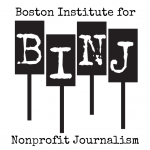“How do you do that when you’re not in the room with the person? How do you make sure everyone gets what they need in that environment?”
Educators in Somerville are facing a new and challenging frontier. The spread of coronavirus has led to an overhaul of the system as they know it, ever since the city’s public schools closed down on Thursday, March 12, asking staff and students to stay home in the name of safety.
In the aftermath of that decision, teachers in Somerville, like almost everywhere else, have scrambled to adjust lessons for a virtual world, while the district has grappled with the difficulty of distributing laptops to students who need them. According to Somerville Teachers Association (STA) president Rami Bridge, teachers and paraprofessionals are being asked to adapt to an uncertain world.
“In Somerville and across the country, everyone is trying to reinvent what school looks like on the fly,” Bridge said. “There’s such a wide range of experiences of our students and families, that figuring out how to create an education system that works for everybody in this moment is very complicated. … Trying to figure out what the world looks like, let alone what the educational model is going to look like, is really what we’re struggling with.”
Bridge emphasized that up to this point, the priority for most educators has been the safety of their students and their families, rather than the academic curriculum. Many teachers and paraprofessionals have maintained contact with their students by participating in weekly check-ins on the video platform Zoom.
For one Somerville teacher who we’ll call Sarah (she asked that her real name not be used), remote teaching is very much “a work in progress” that she and countless others are now navigating. Sarah posts readings, questions, and documentaries online, while still trying to conduct short lessons over Zoom. Paraprofessionals like Christine (also an alias) have said the schedules of the preschool-aged children who she works with are dramatically different from what they would have during a six-or-seven hour school day. The lack of structure that the students have in the current conditions is a significant change.
“In early education, it’s hard to have four and five-year-olds participate in a Zoom call,” Christine said. “So much of early education is social emotional learning. They were all saying they miss each other—they miss their friends, and they miss their teachers. We’re figuring out how we can provide them with social emotional support in creative ways, during a crisis that is hitting their families incredibly hard. Teachers and paraprofessionals are recording videos of themselves talking to kids, doing breathing exercises, and reading books.”
Not all students have access to computers or the internet, Bridge noted. Somerville Public Schools has tried to address this issue by distributing Chromebooks that have typically been given to students in the third grade or higher who have access to the internet but no device at home. Equity remains an issue, though, particularly for children with special needs, as well as for families that may need the support of translators. Also, some students may not be experienced in operating technology.
“There’s a huge amount of variation for our students, in terms of their access and support,” Bridge said. “Our job, as teachers, is to make sure all of our students can access the curriculum or access the education that’s happening. How do you do that when you’re not in the room with the person? How do you make sure everyone gets what they need in that environment?”
Many paraprofessionals are facing particular hardships due to the coronavirus crisis. They’re typically paid between 20,000 and 25,000 dollars a year, which is not a living wage, Christine said. Paras often rely on multiple jobs to earn a supplemental income, and because many also work in the childcare or service industries, they may have lost those second and third jobs. One Somerville paraprofessional who asked to be called Jane said the situation has created an intense amount of confusion for her, and that not being able to leave the house has led to many restrictions. Meanwhile, the upheaval of the school system has left her with anxiety.
“The unknown factor, it’s hard to deal with,” Jane said. “The uncertainty—I really don’t know what is expected of me at this time. We are getting paid, because the money has already been allocated for us, but I don’t really know how much I should be doing. It’s a stressor.”
Paraprofessionals have been trying to negotiate for a new contract with the Somerville School Committee since last spring. The STA has asked for a higher salary for paraprofessionals, as well as more job security. Following a rally on February 24, both sides agreed that the STA and the committee would continue talks without a mediator. Because of coronavirus, though, the discussion process has been put on hold, and it remains unknown how the two organizations will proceed, Christine said. In the meantime, the hardships faced by many paraprofessionals underscores the need for fair pay.
“This crisis has laid bare for many working people just how hard it is to be a low-wage worker, and that’s incredibly true of paraprofessionals,” Christine said. “It’s one thing to live off the salary of two or three jobs. It’s an entirely different thing to live off of 21,000 dollars a year.”
Bridge said that he anticipates there will be change in how the teaching process is handled in the coming weeks, but stressed that virtual lessons are not an adequate substitute for face-to-face learning.
“This is a crisis,” he said. “What things look like in a crisis is going to be different than reality. You can’t replace school with remote education. That’s not how this works. School and education are such personal relationships that you have with your students, that you have with your teachers. That connection is what drives the learning. You can’t do that remotely, even if everyone has the resources they need. It’s still not replaceable.”










